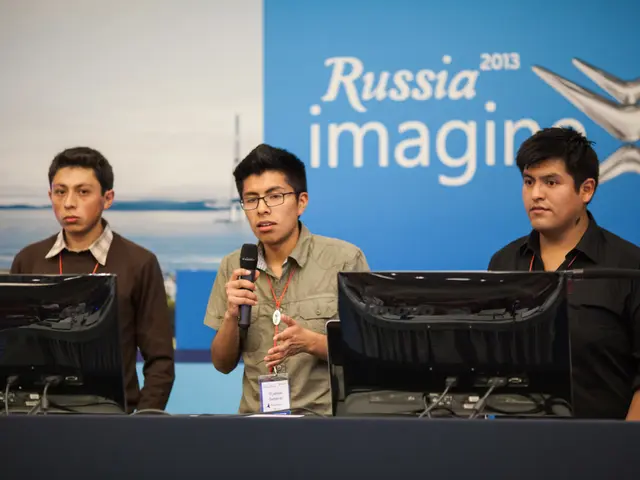U.K.'s top institutions recognized: Southampton ranks high for fostering successful startups and spinoffs
The University of Southampton is making significant strides in driving innovation and startup creation in the UK, particularly in the fields of technology, sustainability, and healthcare. This was highlighted recently as the institution was named one of the best in the UK for spinout companies by the Royal Academy of Engineering.
One of the University's most promising spinout companies, OhmSpace, is developing an electric thruster for long-distance spacecraft to land on Mars or far-off asteroids. Funded by the Royal Academy of Engineering's Enterprise Fellowship, the founders of OhmSpace have recently closed a €1.2m funding round, lead by Scientifica Venture Capital. The company is now working with the British and European Space Agencies.
Another startup launched from Southampton with the support of the university's incubator is Absolar. Founded by Dr Phil Wu, Absolar leverages AI and industry expertise to provide critical information for making solar investment decisions.
The University's success in fostering innovation can also be seen in the figures from the Royal Academy of Engineering report, which shows that spinouts from UK universities secured £2.6b worth of funding in 2024.
Dr Alice Iles, Head of Tech Acceleration at the University of Southampton, commented on the success of the RAEng Enterprise Fellowship applicants. The programme, which is an important enabler of a growing UK spinout pipeline, currently supports around 120 staff and students each year to turn their research into commercial businesses.
Southampton's tech company, Aquark Technologies, is another example of the University's innovative spirit. The company creates portable and robust hardware for quantum sensing, quantum computing, and quantum communications, making it the first UK company to be funded by the NATO Innovation Fund.
The University's commitment to sustainability and impactful research aligned with global development goals further positions it as a leader in nurturing innovation-led startups that address environmental and societal challenges. Southampton has been involved in pioneering public science initiatives to tackle pressing global challenges like antimicrobial resistance, leveraging public engagement to accelerate innovation in treatments such as phage therapy.
Ben Clark, the Director of the University's incubator, commented on the commercial potential of pioneering research in university labs. He stated that enabling scientists and engineers to solve problems and build solutions maximises the commercial potential of this research.
Interested individuals can book an informal call or meeting with the University's team to learn more about the RAEng Enterprise Fellowship and the support available for creating startups at any stage of the process. The University's website also runs an information event about the programme and what it offers.
With its strong collaboration with regional and national partners, leadership in launching cutting-edge research centers, engagement of public and scientific communities in research initiatives, and commitment to sustainability and impactful research, the University of Southampton continues to be a key institutional catalyst for innovation and startup ecosystem growth in the UK.
- The University of Southampton's OhmSpace, a promising spinout company, is working on developing an electric thruster for long-distance spacecraft with funding from the Royal Academy of Engineering's Enterprise Fellowship.
- Another startup, Absolar, launched from the University of Southampton's incubator, leverages AI and industry expertise to provide essential information for making solar investment decisions.
- The Royal Academy of Engineering report shows that spinouts from UK universities secured a total of £2.6b worth of funding in 2024, highlighting the success in fostering innovation.
- Dr Alice Iles, Head of Tech Acceleration at the University of Southampton, lauded the success of the RAEng Enterprise Fellowship, currently supporting around 120 staff and students annually to turn their research into commercial businesses.
- Aquark Technologies, a Southampton-based tech company, creates portable and robust hardware for quantum sensing, quantum computing, and quantum communications, making it the first UK company funded by the NATO Innovation Fund.
- The University of Southampton is committed to sustainability and impactful research aligned with global development goals, positioning it as a leader in nurturing innovation-led startups that address environmental and societal challenges.
- Interested individuals can learn more about the RAEng Enterprise Fellowship and the support available for creating startups at any stage by booking an informal call or meeting with the University's team or attending the University's website information event about the programme.








